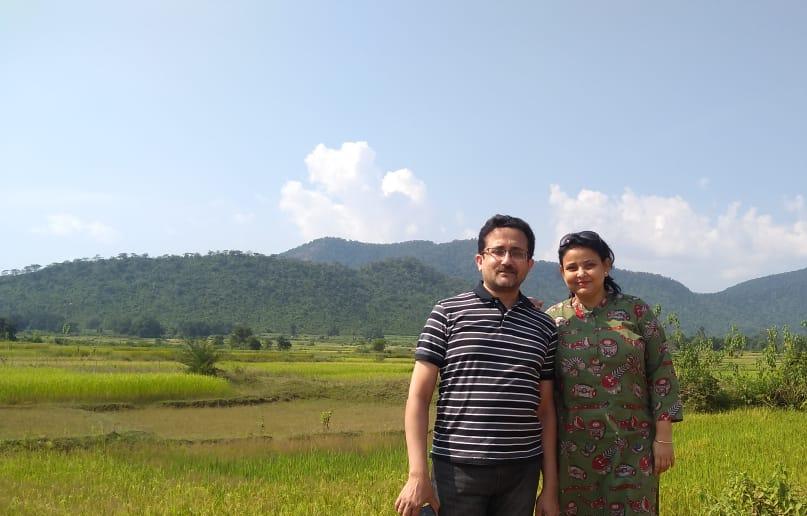It is well-known now that the vegetables and fruits we buy at the stores are grown with a generous application of chemicals and fertilisers. In fact, this is believed to be a major reason behind the growing number of cancer cases.
There are few places in the state, apart from Phulbani and Rayagada, where vegetables are grown organically. However, farming vegetables without the use of chemicals is not as difficult as it is made out to be, says Indurekha Nanda of Bhubaneswar who is on a mission to spread awareness on the importance of cultivation of organic fruits and vegetables. She has focused on making tribal farmers aware of organic farming methods and has devised a method to keep the good quality of soil intact.
Indurekha has visited many districts in the state to tell people of the harmful effects of fertiliser use in farming. She says, “A few years ago, my mother was diagnosed with cancer leaving the whole family in shock. I was living with my husband, Saurav Prakash Nanda, in Pune then. I wanted to know how my mother had developed this disease as she had no bad habits. I searched the Internet and talked with many physicians to find the reason. Consuming fruits and vegetables that are grown with a high dose of fertiliser can be a reason, I was told. Then I searched for alternatives for the fertilisers and pesticides available in the market.”
“My husband helped me a lot in this regard. He asked me to visit Sikkim where the farmers grow vegetables using only organic compost. The Sikkim government has banned the production and entry of pesticides into the state. This has left the farmers with no option but to cultivate organic fruits and vegetables. We spent nearly a month in Sikkim and learned many things about the procedures of organic farming. I came back to Odisha and found the state government encouraging entrepreneurs and giving subsidies to produce organic products. But, maybe due to ignorance, people were still using chemical fertilisers that have a harmful impact on the body,” she adds.
Soon, Indurekha shifted to Bhubaneswar. She travelled to many places in the state and talked to people about organic farming and the state government’s subsidy for organic products. She says, “When we buy products with organic certification, we can be sure that the food doesn’t contain any harmful chemicals. It also guarantees that they are not genetically modified organisms (GMOs). Organically certified foods are free of toxic chemicals and safe for consumption. So, opting for organic foods is like taking a stance against the production of chemical fertilisers that cause food contamination. I work along with tribal and small-scale farmers to preserve and promote traditional farming methods with local varieties of seeds, thus reducing input cost.”
According to Indurekha, most of the state’s farmlands are becoming less fertile because of the excessive use of chemicals during cultivation. She is educating farmers to keep their lands chemical free and fertile with natural nutrients. She says, “Growing food organically does not harm the surroundings of the farmland. With organic farming methods you can ensure that toxins are not released into the air and do not contaminate the sources of drinking water and affect soil quality. This apart, farmers don’t get exposed to herbicides and pesticides all day. It is not only about educating farmers to not use chemicals, my goal is to teach them how to have a sustainable livelihood. Also, everything ends up in the ocean. The pesticides used in farming drain into the sea after rain and pose a threat to aquatic animals. Organic farming therefore protects marine life too.”
SOYONG, OP
